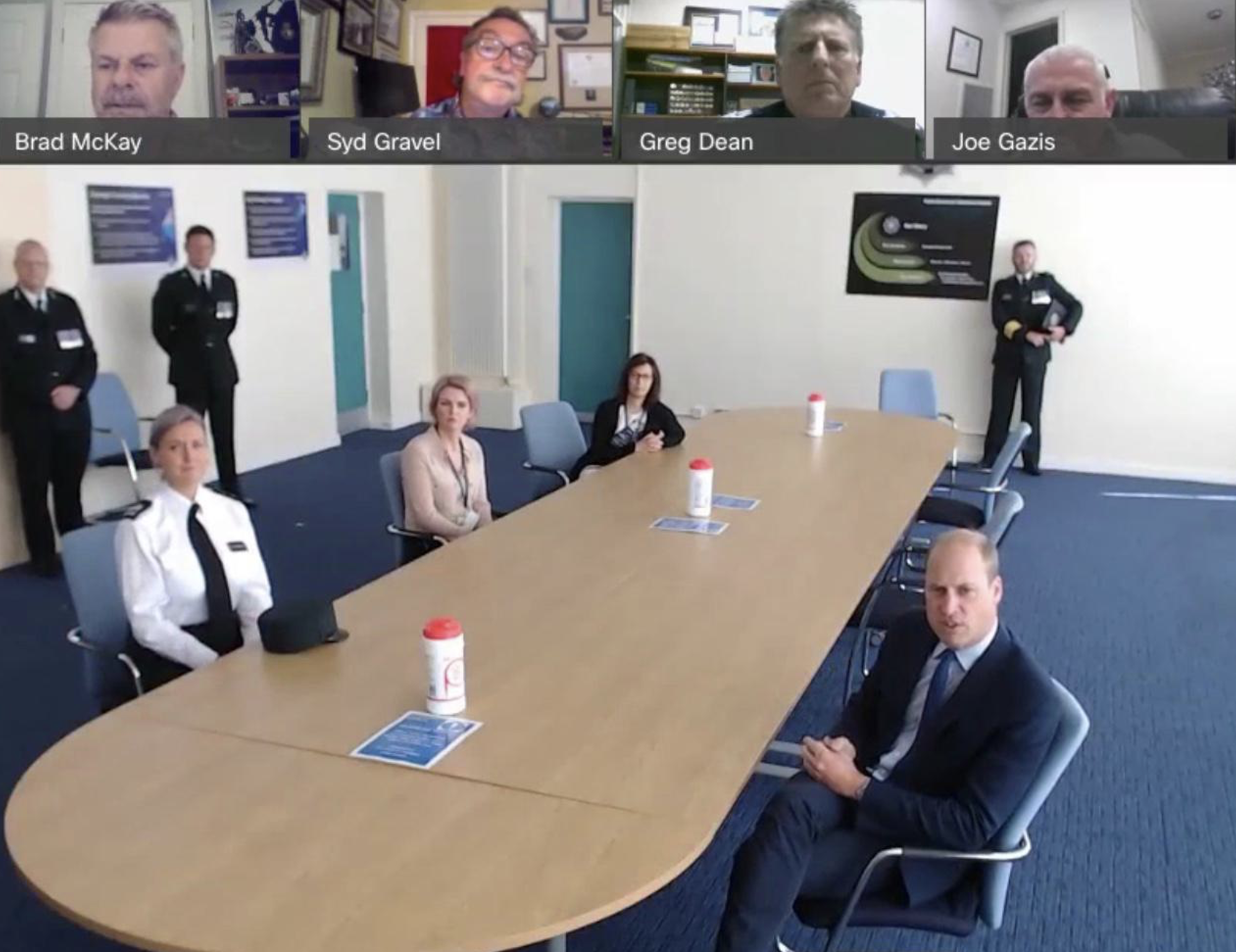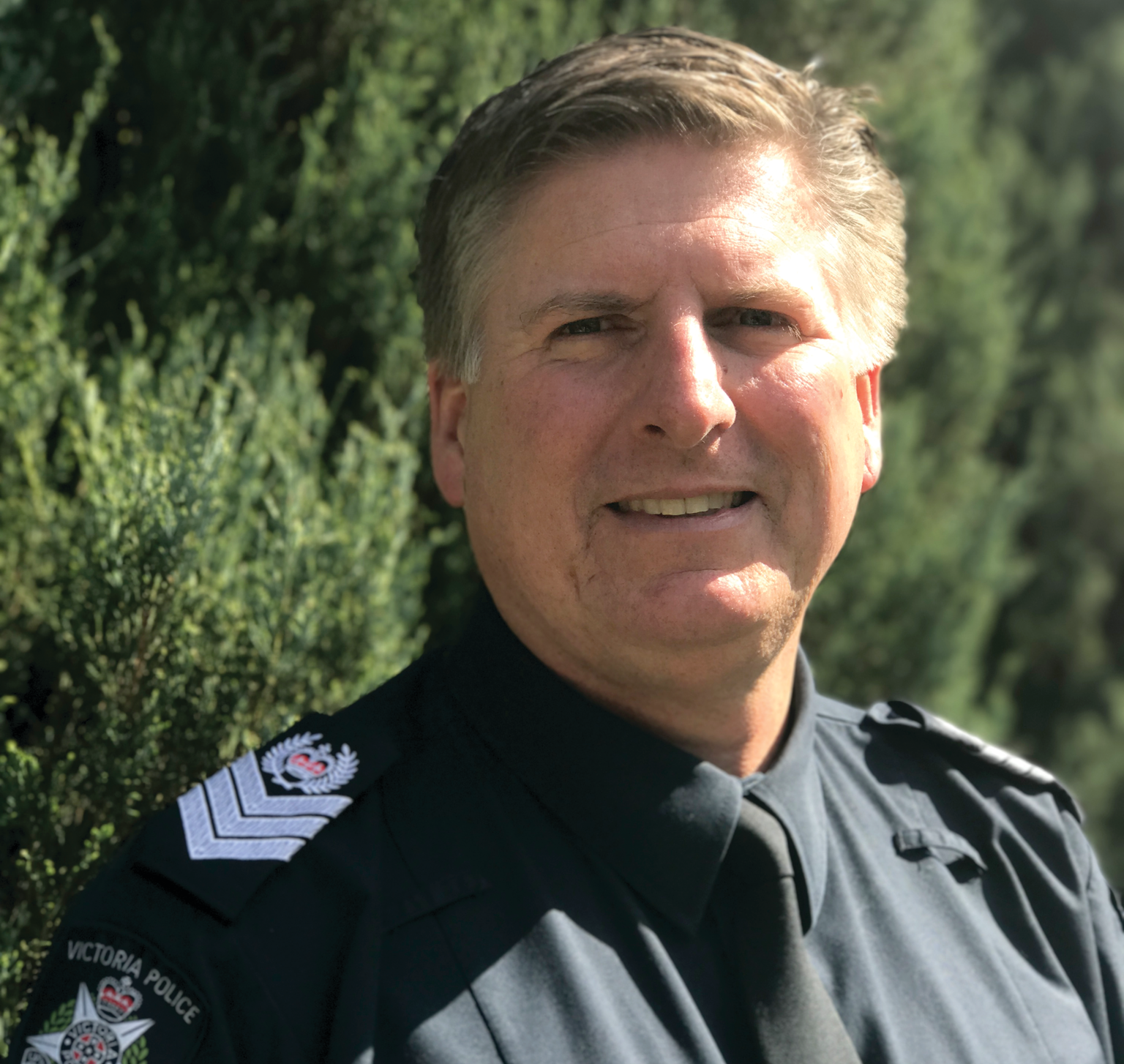Everyday is a good day to talk about mental health, to take the time to ask, listen and encourage action whenever someone around us is struggling. We caught up with Churchill Fellow and Station Commander Greg Dean to hear about how emergency services all over the world are in this fight for good mental health, and his work to normalising mental health conversations to support police officers. Greg’s story truly shows how global a Churchill Fellowship is and always will be.
You’ve been with Victoria Police for 31-years and currently a Station Commander, tell us a little bit about your role/s?
I’m currently the Station Commander at the Glen Waverley Police Station, which is situated approximately 20-25 kilometres south-east of the Melbourne CBD. I’m in charge of the police station and manage around 50 general duties officers. The experience of my staff range from brand new trainee constables through to a sergeant who has almost 44 years of policing behind him. Our policing response zone covers a number of suburbs and is quite multi-cultural. Our main policing issues focus on family violence and property related crimes such as theft of and from motor vehicles. Road trauma also is an important focus for us as one of the main freeway arterials in Melbourne, the Monash Freeway, travels through our area as well as a number of other multi-lane carriageways that carry large amounts of traffic. Community engagement is also an important component of my work and I regularly meet with stakeholders to ensure that we provide a professional and inclusive relationship so we can make it as safe as possible for everyone who lives or visits Glen Waverley and its surrounds. My role is strategic, proactive as well as reactive.
Most importantly though, as the Station Commander I see my role as a leader, mentor, teacher , manager and motivator to all of my staff. I take great pride in providing my staff with a safe, inclusive and enjoyable workplace so that everyday they wake up looking forward to coming into work. Police officers throughout their career face many, many traumatic events and as their boss I make sure that their workplace provides them with an environment that allows them to normalise mental health conversations. By normalising these conversations it encourages all of us to break the stigma of help-seeking and therefore be able to seek early intervention into their mental health, which we all know is the key to a healthier mind. By providing them with this enjoyable and safe working environment, I am more likely to achieve my goal of providing a safer community to all those in and around Glen Waverley. I believe I am achieving this.
What inspired you to get into this kind of work?
Policing wasn’t my dream job as i went through school, but after joining in 1989 I can’t imagine doing anything else. It has provided me with so many opportunities, both professionally and personally and even after 31 years I still look forward to going to work everyday. A family member of mine was a police officer in Victoria Police when I finished school and listening to his stories certainly appealed to me. I felt that as I progressed further through my career that I had some natural leadership qualities and I really value being able to mentor, guide and assist junior staff progress their own careers. It brings me great enjoyment to see junior staff of mine achieve their own goals by being promoted or becoming an investigator for example.
“Never in my wildest dreams did I think as a police officer with Victoria Police that I would have an opportunity to privately address the future King.”
Can you put into perspective the influence this work has?
I remember when I was a trainee constable one of my sergeants gave me some wise advice. He said Greg, “If you want to be a good leader, I suggest you take notice of good leadership qualities in others and put them in your back pocket for later on and those bad qualities forget them immediately and put them in the bin.” This has stood me in very good stead as I moved through the ranks to where I am now and I conduct myself in a way so that hopefully those watching my every move choose to put as many of my qualities in their back pocket. At my rank and in my role I am in a significant position of influence, so the more positive influence I can provide the better.
I also believe my role has significant influence in the area of mental health in policing. My passion and knowledge in this area allows me to break down the many cultural barriers that have existed in policing for many decades around help-seeking. By being proactive in normalising mental health conversations within our workplace I believe it will pave the way for the junior staff of today to set many positive pathways, strategies and initiatives in the future as they work towards being leaders and managers themselves.
How has your 2017 Fellowship supported your work?
My fellowship has allowed me to improve and consolidate my knowledge in best practice around early intervention strategies and initiatives by learning from so many experts in this field as I travelled through the USA, Canada and UK. Not only did I learn from my many contacts, I also established that what we have here in Victoria Police is world class and in most cases world leading. It also helped me confirm that we were and are heading in the right direction, although there is plenty of work to do.
On return from my Fellowship I have hosted two Churchill Fellows from the UK, who are also police officers. One was from Manchester and one from Northern Ireland and they both visited Victoria Police to research our Wellbeing Services program. This information sharing is a perfect example of how the Churchill Fellowship opportunities not only benefit the recipient and their community but communities across the world.
My fellowship research came with 14 recommendations, 12 of which were supported by Victoria Police’s Chief Commissioner, Mr Graham Ashton. I have been working through these recommendations with a number being already implemented. I am still working on the others. My research has certainly provided me with the impetus and credibility within Victoria Police to do so and even since transferring to Glen Waverley in the last twelve months senior command within my new region have reached out to me to implement different strategies and initiatives. This has certainly provided many, many colleagues with support options and opportunities that most likely wouldn’t have eventuated if I didn’t have the Fellowship behind me.
“Police officers throughout their career face many, many traumatic events and as their boss I make sure that their workplace provides them with an environment that allows them to normalise mental health conversations.”
You recently met His Royal Highness, The Duke of Cambridge to speak on the peer support in Victoria Police, tell us about this opportunity?
Twice in the last 12 months I have been invited by Sergeant Belinda Mason, Churchill Fellow from Northern Ireland, to present at both London and Northern Ireland’s first ever official peer support training program that she implemented . A significant amount of the training program content has been supported by Victoria Police’s peer support program, which has been functioning for around 17 years. On the 9th September 2020, His Royal Highness, The Duke of Cambridge visited Northern Ireland’s peer support course to support the UK’s national Emergency Services Day. During his visit he took time out to address myself and four other international presenters at the course. I was given an opportunity to speak directly with Prince William for 3-4 minutes where I outlined my role in Victoria Police and issues around peer support and how much of an important role peer supporters play for station commanders. He then asked each of us an individual question, which thankfully I was able to answer to his satisfaction. Prince William is clearly very well educated and passionate about mental health amongst emergency service personnel and he was extremely relaxing and calming and it was certainly both a career and personal highlight. Never in my wildest dreams did I think as a police officer with Victoria Police that I would have an opportunity to privately address the future King.
What are you working towards now?
Since returning from my Fellowship I have also been successful in obtaining a scholarship through The Emergency Services Foundation (ESF) Victoria in 2019. This research took place in Australia where I researched holistic mental health retreats. My passion for this further research was gained after visiting The Police Treatment Centre in the UK during my Churchill Fellowship.
As a result of this new research I am part of a working party with the ESF, representatives from all emergency service agencies in Victoria and the applicable Workcover insurers to utilise best practise to put together a holistic mental health retreat pilot program before establishing Australia’s first ever emergency services only retreat. It’s aimed at early intervention using holistic treatment so that emergency services personnel can be educated and provided with strategies and life skills to address their potential mental illness without solely relying on clinical therapies. Funding support is also being sought from the Victorian state government.
I also continue to work towards completing my outstanding Churchill Fellowship recommendations.
See below Greg with Prince William.

